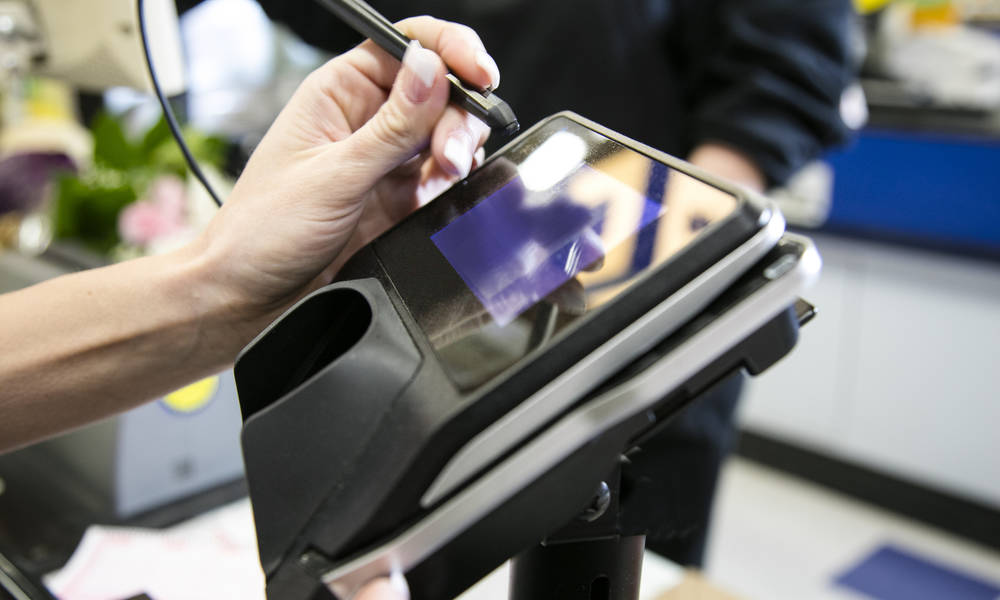
Retailers Get Ready as Signatures Become Thing of the Past
The four major card providers will stop requiring merchants to accept signatures, a long-desired move by the retail industry. Merchant groups expect some to move faster than others, while a financial technology group says that the move was enabled by the introduction of the chip card.
Soon enough, signing for your card purchases will become a thing of the past. And many retail and merchant groups can’t wait.
Later this week, the four largest card networks—American Express, Discover, Mastercard and Visa—will drop the requirement that retailers take signatures with purchases, a move that appears to reflect a frequent criticism of the signatures—that they’re a weak form of security that’s falling out of date. The decisions by the card providers came separately—with Mastercard making the first move in October—but by January, all four major providers had made the big move.
The Retail Industry Leaders Association was quick to cheer on Mastercard’s October decision, saying it “acknowledges what retailers have long-argued, that signatures are a costly yet feeble means of securing transactions.” In the past, RILA and similar groups have discouraged the use of signatures in recent years and pushed instead for financial firms to switch to the chip and PIN standard used with cards globally.
The result of this move is that many retailers are likely to drop signatures in the months to come, though some will have an easier time than others. The Merchant Advisory Group, an industry group that supports retailers’ use of payments technology, reported last week that it anticipated more than half of its 85 members, mostly large merchants, would get rid of the signature requirement entirely. As MAG’s members represent more than $3 trillion in sales, that’s not an insignificant change economically.
But while many are looking to make the change, there may be some practical reasons why others may not—or, at least, why there may be a delay. In comments to USA Today, MAG Senior Vice President of Operations Laura Townsend noted that some retailers may face technical challenges that may not allow them to immediately stop taking signatures. Additionally, she said that some types of retailers have their own reasons for using the signature functionality.
“If you think about a sit-down restaurant, they may go ahead and give the receipt to the customer anyway to get a tip. So from an operational standpoint, they probably won’t change,” Townsend told the news outlet.
The Electronic Transactions Association, in an article in its publication Transaction Trends, said that the successful uptake of chip cards allows for the opportunity for getting rid of the signature process.
“Removing the signature speeds up the checkout process, allowing merchants to move more customers through lines,” said the association’s CEO, Jason Oxman, in the article. “This is an important step in moving towards contactless payments and creating a consistent payment process at the point of sale. It doesn’t matter if you are buying a cup of coffee or a TV, a signature is no longer needed since anti-fraud capabilities have advanced.”
A report last year from PULSE Network found that fraud loss rates among U.S. financial institutions had declined by 28 percent in 2016 from 2015, as chip card uptake grew.
(Bill Oxford/iStock/Getty Images Plus)






Comments